The Problemist Diary Part III
Solving chess problems is similar to solving tactics in that you have to familiarize yourself with certain patterns and themes. We have already come across the very important interference theme Grimshaw in our previous articles. In today's article we delve deeper into it and mainly examine it through three-movers. Earlier we kept our discussions limited to mostly mate-in-2s, today we will see how increasing the length of the problem by just one move enhances its complexity and richness of play.
Understanding the Grimshaw
"A Chess Problem is, or ought to be, an expression in its most attractive form of some one or more aspects of the science and strategy of the game. Its difficulty should be deductive rather than merely enigmatic. Its key should open the door to the delightful. It ought always to illustrate the artistry of the game - to stand in relation to actual play as poetry does to prose" - Thomas Taverner
In our previous articles we have discussed how every chess problem conceals a so-called "theme". A theme is understood to be a beautiful or artistic chess idea that is manifested in the play of the solution to the problem. Through a composition, a chess composer strives either to present an original theme or an original combination of themes already known in the most aesthetically pleasing way possible. Therefore, to be reasonably sure that he is actually inventing something new and not merely reworking prior art (or "anticipation", as we call it) a composer has to have a good grasp over problem nomenclature. A solver on the other hand can mostly do away with this formality, for him it is just the interplay between the pieces that is interesting. But nevertheless having a basic knowledge of certain motifs can really come in handy, sometimes a particular arrangement of pieces can immediately hint towards a particular theme, facilitating the discovery of the key far more quickly than otherwise. Grimshaw is one such tool that is a must in every solver's arsenal. We have already come across it in our previous articles but today we delve deeper into it.
Problem 1
Sergey Pugachev, W. Kon 1950, 1st Prize
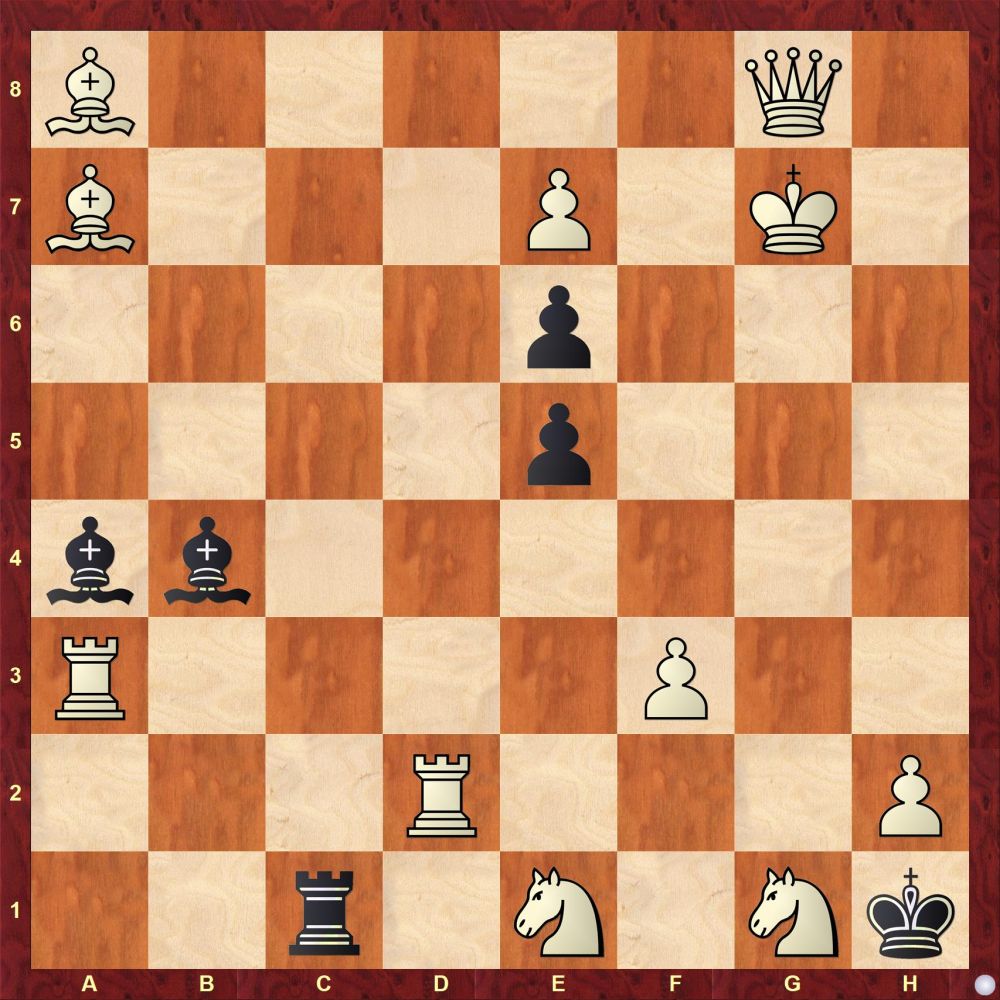
FEN: B5Q1/B3P1K1/4p3/4p3/bb6/R4P2/3R3P/2r1N1Nk w - - 0 1
White wishes to move his king out of the g-file and go Qg2# but unfortunately life is seldom that easy in chess. The straightforward tries 1.Kf7, 1.Kf6, 1.Kh7, 1.Kh6 and 1.Kh8 are simply refuted by 1.Be8+, 1.Bxe7+, 1.Bc2+, 1.Bxd2+ and 1.Rc8 respectively. White therefore has to work out a deeper strategy, a fore-plan that will allow him to move his King without incurring the weaknesses underlined by the above tries. The key is 1.h4! - a surprising move but with a clear idea. White intends to activate his battery on h1-a8 diagonal, at the same time bringing his rook on a3 into the foray. The threat 2.f4+ followed by 3.Rh3# is concrete. Black attempts to parry this but that leads to unexpected mutual interferences allowing White to realize his original idea: 1...Rc5 2. Kf6 - 3. Qg2#; 1...Bc5 2. Kh8 - 3. Qg2#; 1...Rc3 2. Kh6 - 3. Qg2#; 1...Bc3 2. Kf8 - 3. Qg2#; 1...Rc6 2. Kf7 - 3. Qg2#; 1... Bc6 2. Kh8 - 3. Qg2# (obviously 2... Bxf3 3. Bxf3#); 1... Bb3 2. Kf7 - 3. Qg2#; 1... Bxa3 2. Kh6 - 3. Qg2#; 1... e4 2. Kh7 - 3. Qg2# (2... exf3 3. Bxf3#)
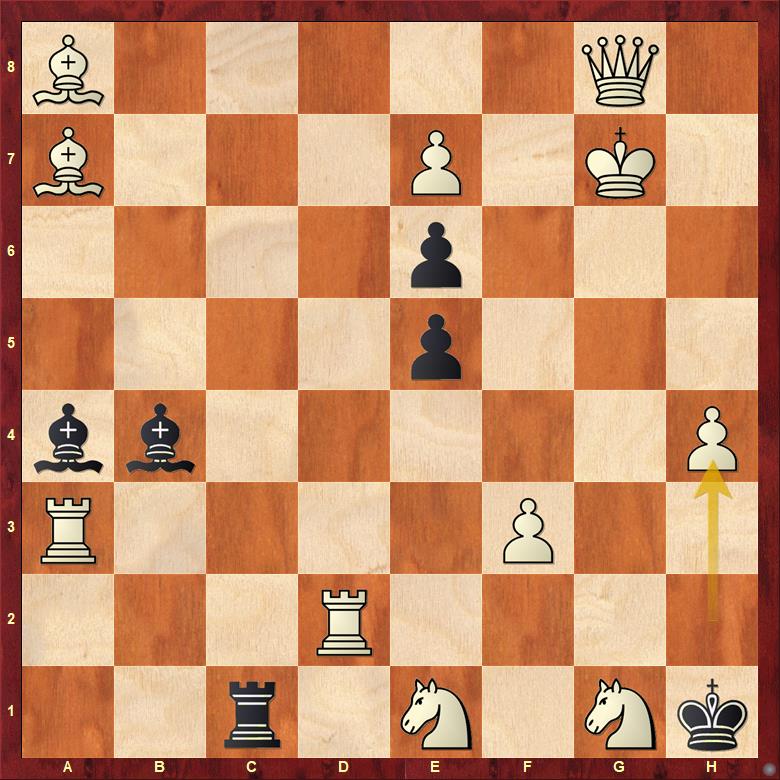
Observe how White exploits the mutually interfering black bishops and rook to move his king to a safe "check-free" spot and deliver Qg2# - this kind of mutual interference of linear pieces is termed as a Grimshaw. The name is after the chess composer Walter Grimshaw in one of whose problems this was first seen. Now let us define this very important concept formally.
Definition (Grimshaw): A Grimshaw is a device in which two black linear pieces with dissimilar movements arriving on a particular square mutually interfere with each other. The term generally refers to Rook-Bishop interferences like in the above problem. A Grimshaw involving pawn is distinguished as a "Pawn Grimshaw" and they have the following special names:
(a) Pawn-bishop Grimshaw = Pickabish
(b) Pawn-rook Grimshaw = Nesic
(c) Pawn-queen Grimshaw = Kubbel

In the next three examples we present Pawn Grimshaw of all three kinds. First, a Pickabish!
Problem 2
Milos Tomasevic, Mat 1981, 1st Prize
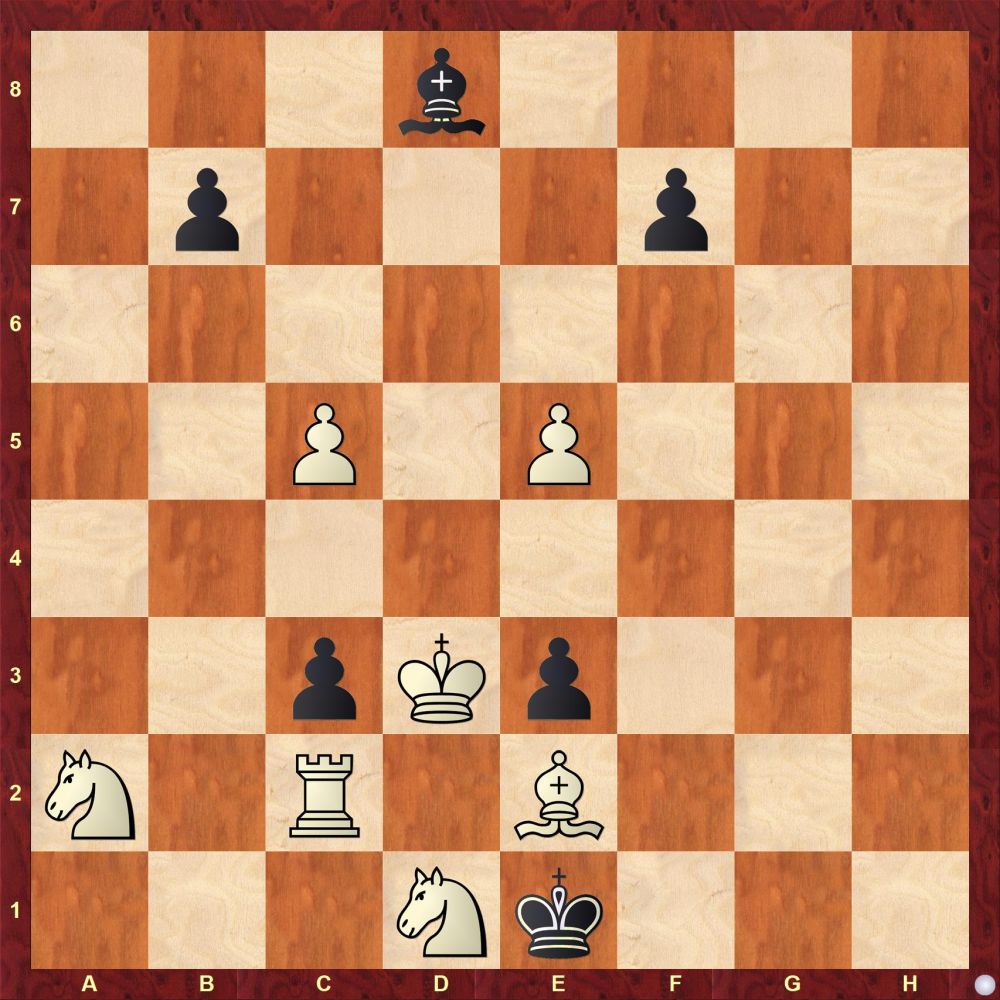
FEN: 3b4/1p3p2/8/2P1P3/8/2pKp3/N1R1B3/3Nk3 w - - 0 1
Here, 1.Nc1! sets up a nice block position. Any reply by Black allows White to move his king to a safe "check-free" spot and deliver 3.Nd3#. The two pairs of variations showing the theme are: 1...Bf6 (respectively 1...Bb6) interferes pawn-push f7-f5 (respectively b7-b5) allowing 2.Ke4 (respectively 2.Kc4) and now 3.Nd3# is inevitable & 1...f6 (respectively 1...b6) interferes the bishop's line allowing 2.Kxe3 (respectively 2.Kxc3) so that 3.Nd3# is now inevitable. There can be other non-thematic lines for example: 1...Be7 2.Kxc3 ... 3.Nd3# & 1...Bc7 2.Kxe3 ... 3.Nd3#
Next, we look at the Nesic theme. The term "Nesic" is after Milivoj S. Nesic (1940 - 2006), the following problem illustrates this theme with great clarity.
Problem 3
Zivko Janevski, Mat 1984, 1st Prize
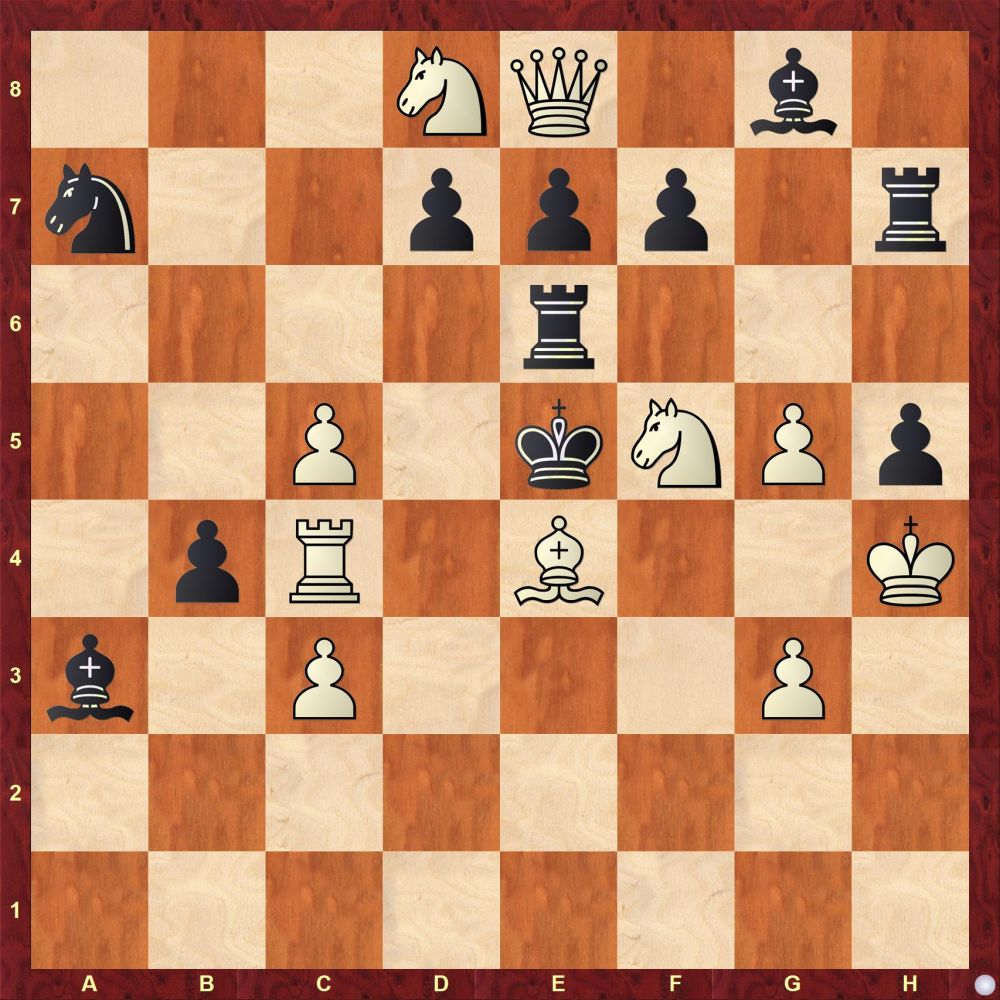
FEN: 3NQ1b1/n2ppp1r/4r3/2P1kNPp/1pR1B2K/b1P3P1/8/8 w - - 0 1
The key is 1.Ne3! - a quiet move, the underlying threat is 2.Qxd7 after which 3.Qd4# or 3.Qd5# inevitably follows. Black's defenses against this threat leads to the following thematic variations:
1....Rd6 interferes with the pawn push d7-d5 and thus 2.Bf5 Rd4+ 3.cxd4#
1....d6 interferes with the rook's line and thus 2.Qc6 Nxc6 3.Nxc6#
1....Rf6 interferes with the pawn push f7-f5 and thus 2.Bd5 Rf4+ 3.exf4#
1....f6 interferes with the rook's line and thus 2.Qg6 fxg5+ 3.Qxg5#
And lastly, a simple illustration of Kubbel or Kubbel Grimshaw. The name is after Leonid Ivanovich Kubbel (1891 - 1942) who, as many chess players would know, was a great study composer.
Problem 4
Martin Wolfgang Hoffman, idee & form 2008
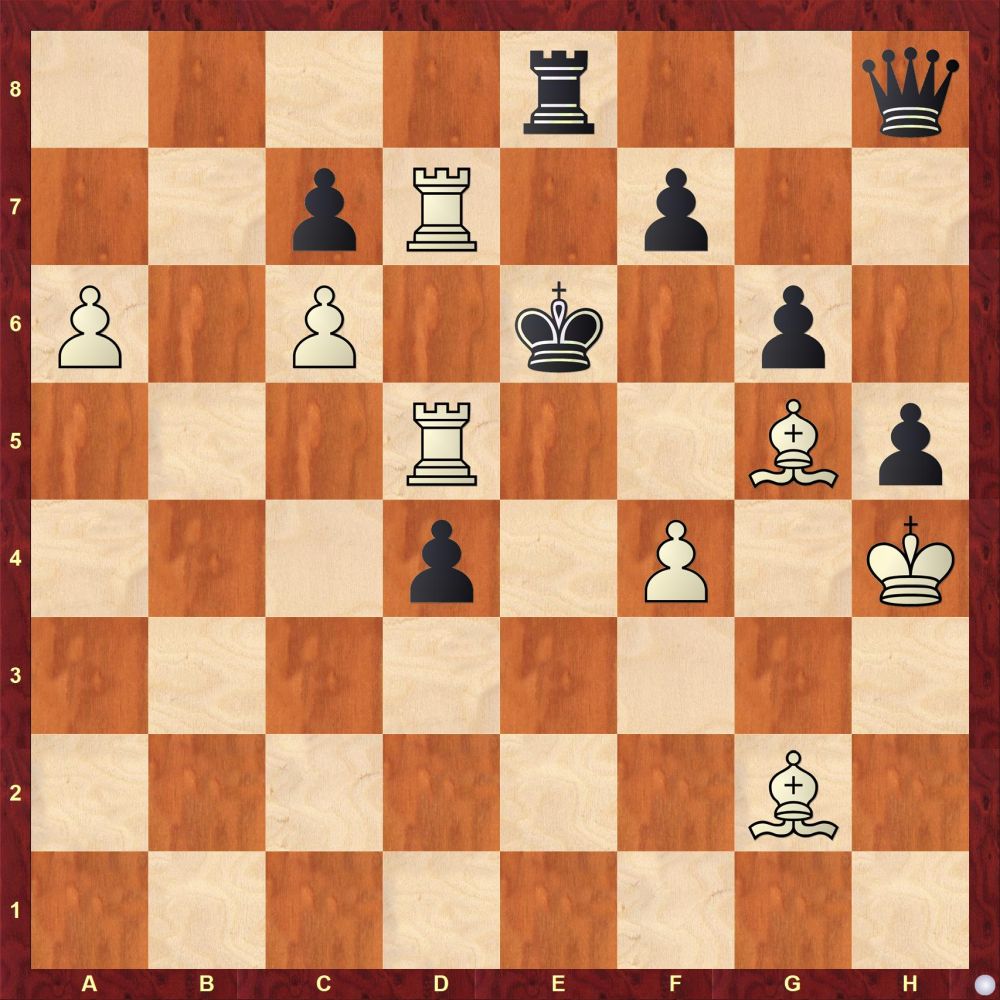
FEN: 4r2q/2pR1p2/P1P1k1p1/3R2Bp/3p1P1K/8/6B1/8 w - - 0 1
The key is 1.a7! - a pawn-push on the edge of the board! The threat is 2.a8=N (underpromotion) followed by 3.Nc7#. If Black simply waits with say 1...d3 then we have 2.a8=N (3.Nxc7#) 2...Rc8/Rxa8 3.Re7# or 2...Qe5 3.Rxe5# and if Black reacts then we have the two thematic variations showing pawn-queen interferences: 1...f6 2.Re5+! f×e5 3.Bh3# & 1...Qf6 2.Bh3+! Qf5 3.Re5#
About the author

Satanick Mukhuty is an author and social media manager at ChessBase India. He has a background in Mathematics. He is an avid enthusiast of composition chess and is sincerely committed to promoting it around the world.














































